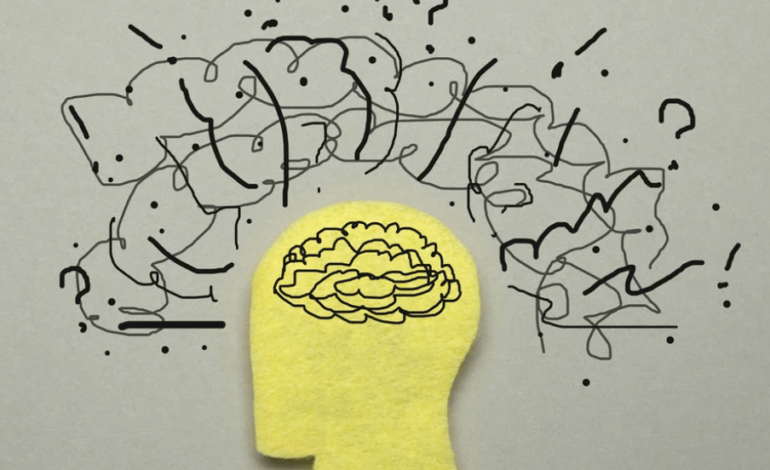“#OCDWeek began in 2009 to share knowledge and reduce stigma around OCD and related disorders. Each year in October, individuals, community groups, service organizations, and clinics around the world welcome you to shine a spotlight on the journey of those with OCD, along with their family, friends, and caregivers, by participating in this year’s theme of The Road To Reclaiming Your Life”.
OCD vs. OCPD
Obsessive-compulsive disorder (OCD) is a mental health disorder characterized by unwanted fears and thoughts (obsessions) followed by repetitive behaviors (compulsions) to relieve the unwanted thoughts. For example, an individual may try to ignore, hide or use drugs and alcohol to drown out the obsessions, but this only causes more distress and anxiety.
It is important to note that OCD differs significantly from an obsessive-compulsive personality disorder (OCPD) as often, these two are used interchangeably. OCPD is marked by excessive attention to detail and perfectionism. The primary difference is that OCD includes obsessions/compulsions, while OCPD does not; instead, OCPD is characterized by perfectionism and control. Individuals with OCPD exhibit ego-syntonic behaviors characterized by actions that align with personal goals, values, and beliefs. Individuals with OCD exhibit ego dystonic behaviors as their symptoms result in severe anxiety and distress.
Some examples of distressing obsessions in individuals with OCD include doubts about having locked the door or leaving the stove on, fear of being contaminated by objects that others have touched, or intense stress when objects are not facing a certain way. These obsessions are often followed by compulsive actions, including repetitive checking the door or stove, cleaning, or repetitive counting and reorganizing.
OCD Is Not Anxiety
Many signs and symptoms associated with OCD are not commonly discussed. One common myth about OCD is that it is an anxiety disorder. OCD is no longer classified as an anxiety disorder in the DSM, but it is classified under Obsessive-Compulsive and Related Disorders. However, many individuals with OCD have extreme anxiety about their unwanted thoughts, but it is essential to remember that worries are not the same as obsessions. To qualify as having obsessions in OCD, an individual must have recurrent and persistent thoughts, urges, or impulses that cause distress and are experienced as intrusive and unwanted.
Six Little-Known Symptoms Of OCD
Body hyperawareness: Individuals with OCD often cannot stop thinking about certain body parts or bodily functions, like blinking or swallowing. As a result, individuals constantly obsess over a specific body part and then compulsively check it for marks, growths, and injuries. For example, an individual may obsess over whether their arm is moving correctly and functioning the way it should. Likewise, if an individual with body hyperawareness cannot stop thinking about swallowing, they become obsessed with how they swallow, how they eat, how others see them when they eat, etc.
Individuals with OCD are chronically late: Chronic tardiness often occurs in individuals with OCD because they need to perform rituals or behaviors (compulsions) to relieve their obsessions before leaving the house or wherever they find themselves at that moment, making them late for appointments and social gatherings.
Reassurance seeking: Many compulsions are driven because of self-reassurance. For example, an individual obsessed with a home robbery will constantly check the door’s lock to reassure themselves that they are safe.
Difficulty concentrating: Individuals with OCD often have difficulty concentrating and completing tasks because they give all their attention to their obsessions and urges. As a result, OCD is commonly misdiagnosed or mistaken for ADHD. On the surface, these two disorders may look similar, but treatment is drastically different.
Fear of emotional contamination: Individuals with OCD often obsess about whether another individual is contaminated with immoral thoughts or behaviors, and being in contact with this person can lead to being “infected” by another person’s values, beliefs, or unwanted character traits. For example, an individual with OCD may be friends with someone who is unfaithful and may leave the friendship out of fear that by being around someone unfaithful, they will also become unfaithful.
Obsessive fears of harming others: Individuals with OCD often have repeated obsessions about harming others. Although they may never act on these obsessive thoughts, many individuals avoid being around others altogether to keep everyone safe. An example would be an individual who fears harming others and may stop driving to avoid hitting a pedestrian or hurting someone in a car crash. In addition, they may stop going to the doctor when ill for fear of getting others sick or may not go to school because they fear they might hurt a fellow student. These individuals can have thoughts of being violent; they can imagine how and when they might hurt someone. This would be disturbing for anyone, but for an individual with OCD, these thoughts are repetitive and alarming.
If you find yourself overwhelmed or know of a loved one struggling, AKUA Mind & Body can help.
Seeking Mental Health Treatment At AKUA Mind & Body
AKUA Mind and Body is a full-service treatment center that provides residential treatment, partial hospitalization, intensive outpatient treatment, outpatient treatment, and virtual treatment to both men and women struggling with a substance use disorder, a mental health disorder, or both (co-occurring disorder). AKUA Mind and Body provides compassionate, evidence-based treatment to all individuals and families. We combine evidence-based medications and psychotherapy approaches with holistic therapies such as meditation, yoga, and equine therapy, as we believe in treating the mind, body, and spirit.
Our clinical staff and ancillary treatment teams take great pride in the care that we provide to our clients and their families. From intake to discharge, we believe in treating the client as an individual and not just treating the disorder. As a result, we provide individualized treatment plans for every client. We offer our treatment services across many locations in California, including Orange County, Newport Beach, San Diego, and Sacramento.




